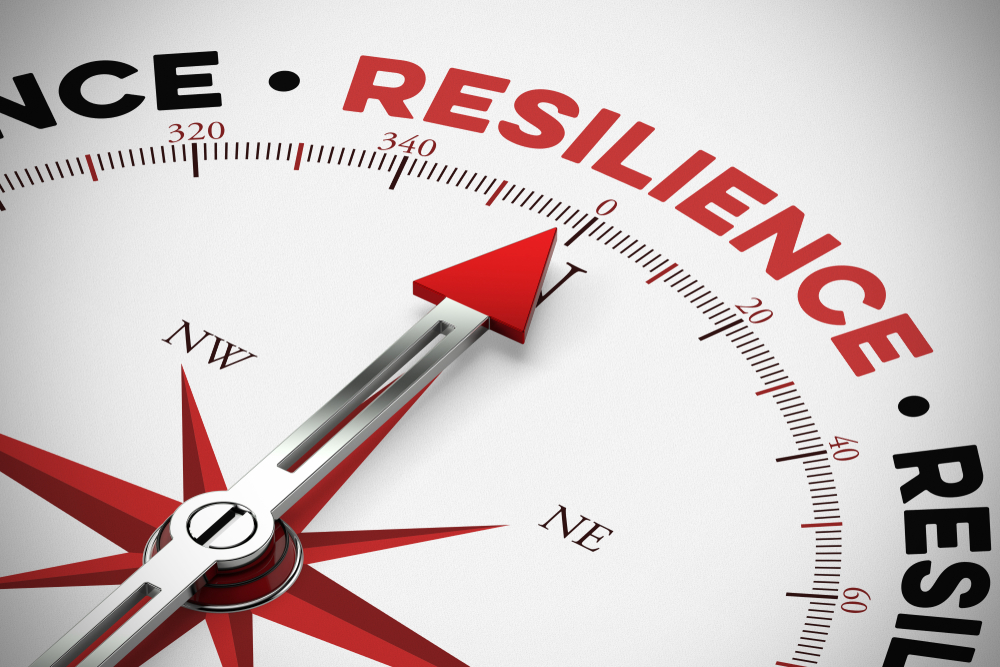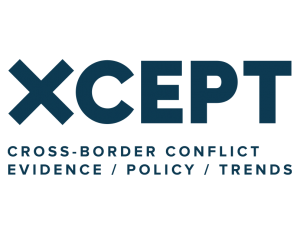By Federica Calissano
Speaking at a memorial event 10 years on from 9/11, then President of the United States, Barack Obama, said that the past decade told the story of America’s resilience. The faith, the belief, and the will of Americans had been tested, but not broken. Losses were mourned, and legacies commemorated, but the American experience endured, and, President Obama observed, ‘where the World Trade Center once stood, the sun glistens off a new tower that reaches towards the sky’.[i]
The events of 9/11 showed the world the strength of the American people, but it also brought another focus on resilience. With concerns over ‘home-grown terrorists’ and the mounting threat of future attacks, Western governments adopted more pre-emptive strategies, turning to resilience as a strategy to counter violent extremist beliefs.[ii] Policies started focusing on building societal and individual abilities to resist radicalisation and withstand the impact of terrorist attacks. The aim was to enhance personal strengths and mental robustness to prevent extremist ideologies from spreading among communities.[iii]

Credit: Shutterstock/Robert Kneschke.
How does resilience work?
The term ‘resilience’ actually originates from physics, where it was used to explain the ability of metals to absorb energy and return to their normal state when the energy had been released. Over the years, it has come to be used in a variety of disciplines.[iv] In ecology, resilience represents an ecosystem’s ability to alter in response to unanticipated external disruptions without losing its basic identity or capabilities.[v] In medicine, it denotes patients’ recovery from physical injuries. In psychological and social studies, resilience refers to an individual’s ability to rebound from adversity, or to tolerate major chronic and severe stressors without developing mental health problems.[vi]
When it applies to terrorism and violent extremism, resilience takes on a larger meaning. It relates to societies’ and individuals’ abilities to reject extremist beliefs, to avoid radicalisation and terrorist threats, and to recover from their repercussions.[vii] As a result of its broad applicability, resilience has become a buzzword in the field of countering violent extremism (CVE), receiving substantial interest from both scholars and policymakers.[viii]
The underlying premise of resilience to violent extremism is that terrorism is fuelled by social, economic, and political inequities, and that those who are disadvantaged or isolated are particularly susceptible to radicalisation.[ix] Resilience-focused strategies therefore aim to prevent terrorism by developing strong, connected, and adaptable individuals with mental strength, who can reject extremist beliefs and recover from attacks.
The Flaws in Resilience
Governments have focused on assisting individuals in building cognitive abilities such as critical thinking, encouraging certain personal characteristics like empathy, and promoting ideals such as tolerance and openness to discussion of contentious subjects.[x] A more critical evaluation of the notion of resilience, however, exposes its limitations and potential pitfalls.
Resilient Until Not
One of the fundamental flaws of the concept of resilience to violent extremism is that there is no such thing like inherent and absolute resilience to political violence. The Turkish community in Belgium, for example, is often considered resilient to jihadism compared to the Moroccan community, but is this because they are inherently resistant to political violence, or because of their commitment to other strong political movements, such as support for Erdogan or Kurdish separatists?[xi] This presents an important question: is there a general resilience that makes an individual unlikely to engage in violence, regardless of the political cause?[xii] Another hypothetical example can be observed in populations living in Western democratic countries, who are usually defined as highly resilient to violent extremism and ideologies. If Western citizens were to become willing to fight and die for liberal democracy, would they start being labelled as non-resilient?
Dominant Norms Dictate Resiliency
Narrowly defining resilience as resistance to violent extremism presents an even more complex challenge. What is not considered violent extremism today may become so under different circumstances. The strong values and identity of the Turkish community in Belgium may have buffered them from involvement in jihadist-linked radicalisation, but this doesn’t mean they would be deterred from engaging in violence in support of other causes.[xiii] If the dominant norms that dictate what constitutes a healthy reaction to threats (or, in this case, to violent extremism) were to change, a community, or an entire population, may quickly become non-resilient.[xiv]
Shifting Responsibilities to Local Actors
Additionally, by prioritising the building of resilient communities, there is the risk of shifting responsibilities from the government to local actors.[xv] The emphasis on the person should not eclipse the need to address the social, economic, and political issues that fuel radicalisation.[xvi] Take poverty – it is as if, in the context of worldwide disparity in wealth distribution, rather than addressing the root causes of poverty, initiatives focused on making disadvantaged communities more resilient to the consequences of poverty. This should not happen in the context of violent extremism. If vulnerability to radicalisation is often caused by external causes like discrimination or abuse, governments should focus on creating social changes to tackle these causes, and not just on making the individual stronger in the face of difficulties.
Imposition of Western Perspective
It is also important to recognise that resilience frameworks constructed from a Western perspective might fail to account for the cultural and contextual factors that drive extremism in non-Western or tribal countries. Syria and Iraq, for example, have endured long-lasting wars, and their populations live in hostile circumstances that necessitate high degrees of resilience. Substantial financial difficulties, political instability, restricted access to healthcare, and massive social unrest are all characteristics that can foster an environment highly vulnerable to extremism. Approaches to CVE in such areas necessitate tailored solutions that address these specific issues. Consequently, the efficacy of resilience-based interventions varies greatly among cultural contexts, and a generic approach would likely fail to tackle the unique issues encountered by marginalised or conflict-affected populations.
In conclusion, while the idea of resilience has received significant attention in the fight against violent extremism, a closer examination reveals its ambiguities and limitations. It is important to question what we mean when we say a community or group is resilient. As policies and interventions to promote resilience are developed, it is also critical to recognise the potential biases inherent in dominant norms and to investigate alternate perspectives. Societies can build stronger and more successful counter-radicalisation tactics, as well as foster a more inclusive and peaceful society, by acknowledging these critical perspectives and taking a balanced approach.
References
[i] The White House. (2011). Remarks by the President at “A Concert for Hope”. https://obamawhitehouse.archives.gov/the-press-office/2011/09/11/remarks-president-concert-hope
[ii] Jore. (2020). Is resilience a favourable concept in terrorism research? The multifaceted discourses of resilience in the academic literature. Critical Studies on Terrorism, 13(2), 337–357. https://doi.org/10.1080/17539153.2020.1733788
[iii] Christodoulou, E., 2020. Boosting resilience’ and ’safeguarding youngsters at risk’: critically examining the European Commission’s educational responses to radicalization and violent extremism. Lond. Rev. Educ. 18 (1), 18–34. https://doi.org/10.18546/LRE.18.1.02;
Home Office. (2021). Building a Stronger Britain Together.
[iv] Davidson, Jacobson, C., Lyth, A., Dedekorkut-Howes, A., Baldwin, C. L., Ellison, J. C., Holbrook, N. J., Howes, M. J., Serrao-Neumann, S., Singh-Peterson, L., & Smith, T. F. (2016). Interrogating resilience: toward a typology to improve its operationalization. Ecology and Society, 21(2), 27–. https://doi.org/10.5751/ES-08450-210227; MacKinnon, D., and K. D. Derickson. (2013). From Resilience to Resourcefulness: A Critique of Resilience Policy and Activism. Progress in Human Geography, 37(2): 253–270. doi:10.1177/ 0309132512454775.
[v] Jore, 2020.
[vi] Bourbeau, P. (2018). A Genealogy of Resilience. International Political Sociology, 12(1): 19–35. doi:10.1093/ips/olx026.
[vii] Jore, 2020.
[viii] Wimelius, M.E., Eriksson, M., Kinsman, J., Strandh, V., Ghazinour, M. (2018). What is local resilience against radicalization and how can it be promoted? A multidisciplinary literature review. Studies in Conflict and Terrorism, 1(18). https://doi.org/10.1080/1057610X.2018.1531532.
[ix] Ellis, & Abdi, S. (2017). Building Community Resilience to Violent Extremism Through Genuine Partnerships. The American Psychologist, 72(3), 289–300. https://doi.org/10.1037/amp0000065
[x] Stewart, S. (2018). Building Resilience to Violent Extremism. A cultural relations approach. British Council.
[xi] Hamid, N. 2018. The Road to the Paris November 2015 and Brussels March 2016 attacks. Artis International.
[xii] Stephens, & Sieckelinck, S. (2021). Resiliences to radicalization: Four key perspectives. International Journal of Law, Crime and Justice, 66, 100486–. https://doi.org/10.1016/j.ijlcj.2021.100486
[xiii] Hamid, 2018.
[xiv] Anholt, R., 2017. Governing Humanitarian Emergencies, Protracted Crises, and (In)Security through Resilience. Retrieved from Amsterdam. https://research.vu.nl/ ws/portalfiles/portal/12946141/ISR_Governing_Insecurity_Through_Resilience_Research_Report_2017.pdf
[xv] Anholt, 2017; Christodoulou, 2020.
[xvi] Evans, B., Reid, J. (2013). Dangerously exposed: the life and death of the resilient subject. Resilience, 1(2), 83–98.

This publication was produced as part of the XCEPT programme, a programme funded by UK Aid from the UK government. The views expressed do not necessarily reflect the UK government’s official policies.
